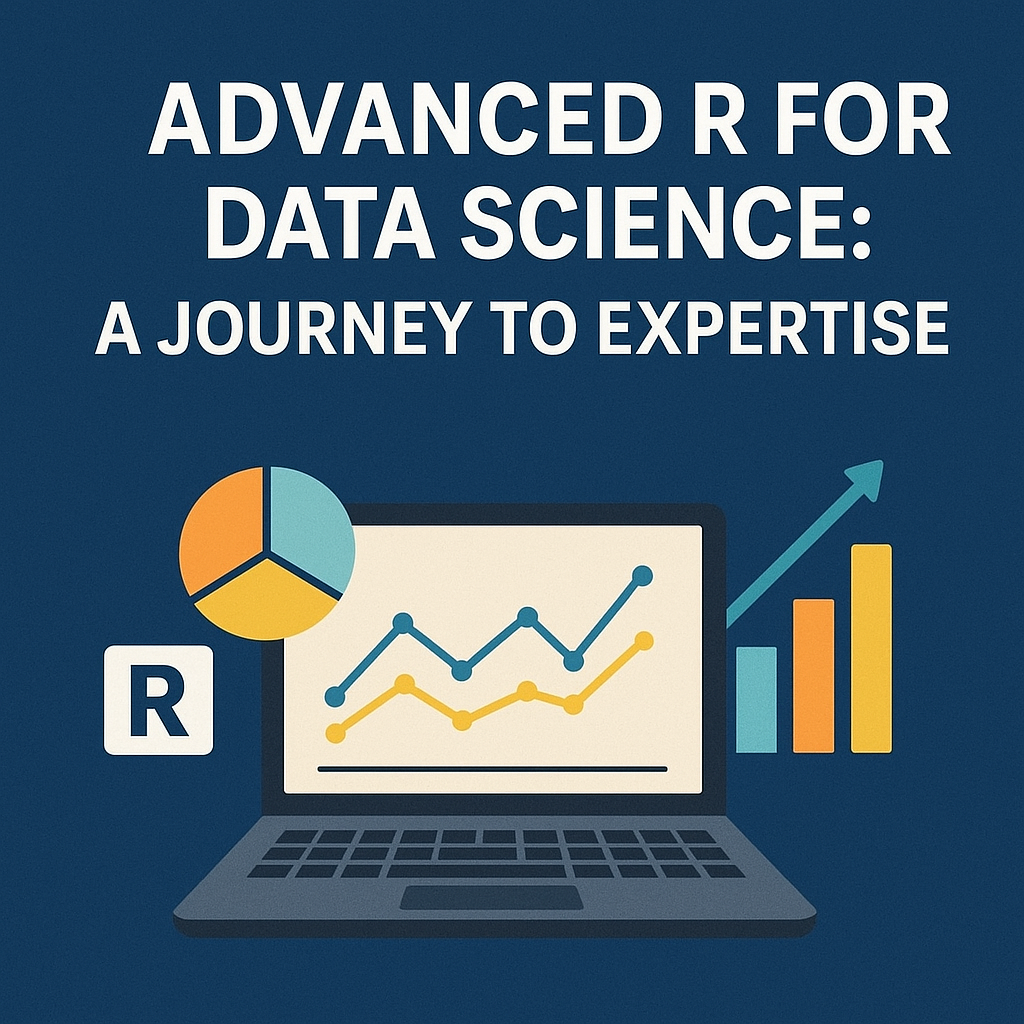
R has long been one of the most powerful tools for data analysis, statistical modeling, and machine learning. While beginners often use R for basic data wrangling and visualization, advancing your skills opens the door to more complex, efficient, and impactful data science solutions. In this blog, we’ll explore the path from intermediate proficiency to true expertise in Advanced R for Data Science.
Read More: Mastering Data Science with R: From Skilled to Expert
Why Advance Beyond the Basics?
If you’ve mastered the fundamentals of R — such as data frames, ggplot2, and simple modeling — you might wonder why you should go further. The answer is simple: advanced R skills help you solve bigger problems, handle larger datasets, and create scalable, reproducible workflows. They also give you a competitive edge in research, academia, and industry.
Core Areas of Advanced R for Data Science
1. Efficient Data Manipulation
Packages like dplyr and data.table are essential for handling large datasets quickly. While dplyr is known for readability, data.table excels in speed. Learning both can help you optimize workflows depending on your project needs.
2. Advanced Data Visualization
Moving beyond basic ggplot2 charts, experts use extensions such as plotly, gganimate, and shiny dashboards to create interactive and dynamic visualizations. These tools are key for communicating insights effectively.
3. Functional Programming with R
The purrr package introduces functional programming concepts, making your code more elegant and reusable. Instead of writing repetitive loops, you can use map functions to apply transformations seamlessly.
4. Statistical Modeling and Machine Learning
R shines in modeling. With libraries like caret, tidymodels, and xgboost, you can build predictive models, tune hyperparameters, and evaluate performance. Mastering these frameworks helps bridge theory with practice.
5. Big Data and Parallel Computing
Working with massive datasets requires specialized tools. Packages like sparklyr integrate R with Apache Spark, enabling distributed computing. Similarly, R’s parallelization packages help speed up computations significantly.
6. Writing Efficient and Clean Code
Advanced R isn’t just about functionality — it’s also about writing efficient, maintainable, and reproducible code. Using R Markdown, version control (Git), and unit testing packages like testthat ensures your work is professional and reliable.
Practical Tips to Reach Expertise
-
Work on real-world projects: Apply advanced techniques to business problems, research data, or competitions like Kaggle.
-
Read others’ code: Explore open-source R projects on GitHub to learn best practices.
-
Stay updated: The R ecosystem evolves rapidly. Follow CRAN updates, blogs, and online communities.
-
Teach and share: Writing tutorials or presenting your work helps solidify your knowledge.
Why Bother Moving Beyond Proficiency?
Most data scientists begin with the basics: working with data frames, using some tidyverse code, making quick plots with ggplot, and trying out a few machine learning techniques.
Being proficient means, you can complete analysis tasks, automate routine work, and use R tools confidently. Becoming an expert, however, is a step further: it involves designing efficient code architectures, making model decisions driven by domain understanding, and interpreting complex results to guide business or research outcomes.
Experts build robust, reproducible workflows that others can use and extend. In fields like finance, healthcare, and genomics, moving from proficient to expert can mean the difference between finding real insights and drawing the wrong conclusions.
Adopt the Right Mindset
Becoming an expert is more than just picking up new packages. It’s about changing how you think: always check your assumptions, make your work easy to understand, and make sure everything you do can be repeated.
Experts ask important questions like: How can I test if my model is stable? Can I explain my model to someone without a technical background?
What if the data changes over time? These questions help you build real, practical skills.
High-Performance Data Manipulation
Handling data at scale in R requires more than base functions. The data.table package is a powerhouse for fast, memory-efficient operations on large datasets.
Its concise syntax and in-place modifications reduce overhead and waiting time. For workflows tightly integrated with the tidyverse, consider dtplyr, which compiles dplyr verbs to data.table for speed without sacrificing readability.
Visit Here: https://www.fusion-institute.com/from-proficiency-to-expertise-advanced-data-science-with-r
Conclusion
Mastering advanced R for data science is a journey, not a destination. Each new technique you learn builds on your existing knowledge, moving you closer to expertise. By deepening your skills in data manipulation, visualization, modeling, and efficiency, you’ll unlock the full power of R and become a more versatile, impactful data scientist.



